|
John Casterline
Robert T. Lazarus Professor in Population Studies
|
|
Hollie Nyseth Brehm
Assistant Professor of Sociology
Hollie Nyseth Brehm has been awarded a three-year grant from the National Science Foundation for "Reentry and Reintegration of Convicted Genocide Perpetrators." This research project will follow people who spent time in prison for committing genocide in Rwanda as they return home to their families and communities.
|
|
John Mueller
Senior Research Scientist
"Redefining Winning in Afghanistan"
|
Mershon Memo is a weekly e-mail newsletter distributed by the Mershon Center for International Security Studies, part of the
College of Arts and Sciences at The Ohio State University.
|
|
 |
|
 |
 |
Monday, September 18, 2017
Amr al-Azm, Alam Payind, Richard Herrmann
6 p.m., 120 Mershon Center, 1501 Neil Ave.
Co-sponsored by Middle East Studies Center
 Soviets occupied Afghanistan from 1979 to 1989 to prevent the country from collapsing. Currently Russia is treating Syria as a client state in similar ways. Afghanistan remains a struggling democracy, often falling into "failed state" category. The Syrian state is almost nonexistent in terms of functional central institutions. This symposium will dig deeper into the two countries' situations, answering such questions as: What are the similarities and differences with regard to the relationship with Russia? What role do regional rivalries (Iran and Saudi Arabia) or intervention (Turkey) play? The panel features
Amr al-Azm (left), associate professor of Middle East history and anthropology at Shawnee State University;
Alam Payind, director of the Middle East Studies Center at Ohio State University; and
Richard Herrmann, professor and chair, Department of Political Science. Read more and register at
go.osu.edu/clientstates
|
Tuesday, September 19, 2017
3:30 p.m., 120 Mershon Center, 1501 Neil Ave.
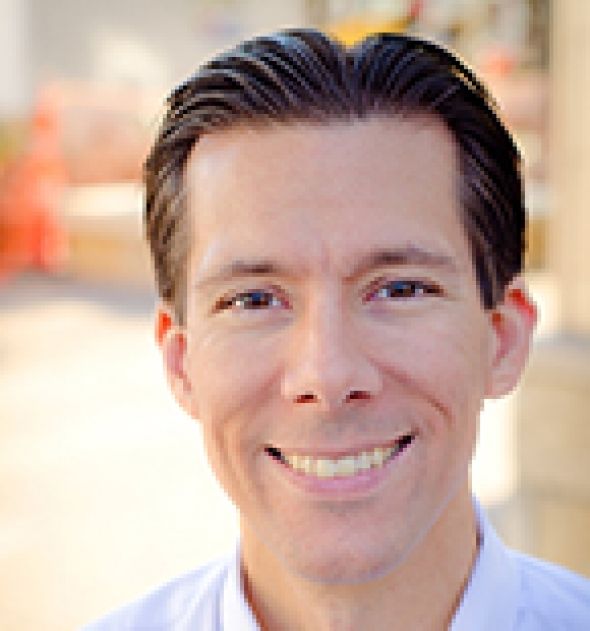 Paul D. Miller
Paul D. Miller is associate director of the Clements Center for National Security at University of Texas-Austin. As a practitioner, Miller served as director for Afghanistan and Pakistan on the National Security Council staff; worked as an intelligence analyst for the Central Intelligence Agency; and served as a military intelligence officer in the U.S. Army, including a deployment to Afghanistan. His most recent book,
American Power and Liberal Order: A Conservative Internationalist Grand Strategy, was published by Georgetown University Press in 2016. In this lecture, Miller argues that U.S. security depends on active sustained support of the international order. Read more and register at
go.osu.edu/millerp
|
Friday-Saturday, September 29-30, 2017
Culture of Military Organizations
120 Mershon Center, 1501 Neil Ave.
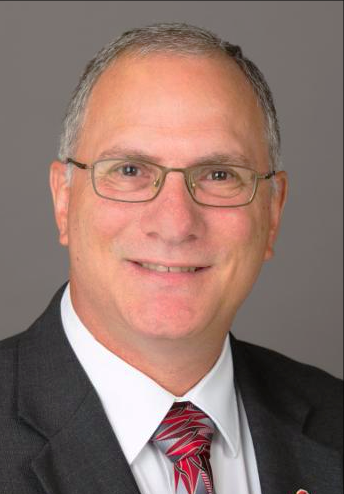 This project aims to explore the impact of the culture on the development of effective military organizations and therefore its impact on security from 1861 to the present. The effectiveness of military organizations is dependent on a number of components, among them organization, doctrine, training, weapons technology, leadership, morale, discipline and cohesion, endurance, and the ability to adapt to volatile and uncertain combat environments. Underlying these factors is organizational culture, a vital wellspring of the effectiveness of armies, navies, and air forces throughout history. Yet organizational culture has been largely understudied as a component of military effectiveness. This project aims to fill that void. Organized by
Peter Mansoor, Gen. Raymond E. Mason Jr. Chair in Military History. Read more and register at
go.osu.edu/militaryorgs
|
Monday, October 2, 2017
4 p.m., 035 Psychology Building, 1835 Neil Ave.
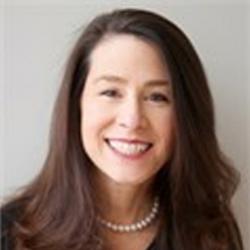 Jennifer Lerner
Jennifer Lerner is professor of public policy and management at Harvard Kennedy School of Government and co-founder of the Harvard Decision Science Laboratory. Her research examines human judgment and decision making. Together with colleagues, she has developed a theoretical framework that successfully predicts the effects of specific emotions on judgment and choice outcomes. At this event, Lerner will present a series of studies from her lab revealing that incidental anger systematically biases judgment and decision making by heightening perceptions of controllability and certainty, decreasing perceptions of risk, and increasing risk taking. Read more and register at
go.osu.edu/lernerj
|
Tuesday, October 3, 2017
3:30 p.m., 120 Mershon Center, 1501 Neil Ave.
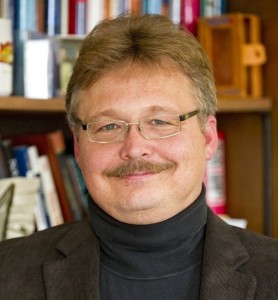 Sean Kay
Sean Kay is Robson Professor of Politics and Government at Ohio Wesleyan University. He is also an associate at the Mershon Center. Kay has published widely on international security issues including the books
NATO and the Future of European Security (1998);
Global Security in the Twenty First Century: The Quest for Power and the Search for Peace (3rd edition, 2015);
America's Search for Security: The Triumph of Idealism and the Return of Realism (2015); and
Rockin' the Free World! How the Rock and Roll Revolution Changed America and the World (2017). At this event, Kay will present his new book which uses interviews with more than 60 American and international rock and roll performers, songwriters, producers, managers, and non-profit activists to show how rock and roll has been a platform of power advancing progress. Read more and register at
go.osu.edu/kays
|
 |
 |
Mershon affiliates examine online censorship in Russia
The Russian government has persuaded many of its citizens to avoid websites and social media platforms that are critical of the government, a new study by Mershon affiliates has found.
Researchers analyzing a survey of Russian citizens found that those who relied more on Russian national television news perceived the internet as a greater threat to their country than did others. This in turn led to increased support for online political censorship.
Approval of the government of President Vladimir Putin amplified the impact of those threat perceptions on support for censorship, according to the study.
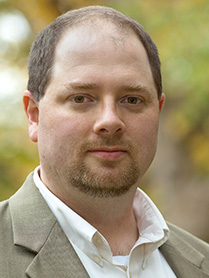 The success of the Russian regime in persuading citizens to self-censor their internet use has troubling implications, said
Erik Nisbet, associate professor of communication.
"This is actually more insidious. The government doesn't have to rely as much on legal or technical firewalls against content they don't like. They have created a psychological firewall in which people censor themselves," Nisbet said.
"People report they don't go to certain websites because the government says it is bad for me."
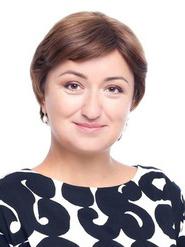 Nisbet conducted the study with
Olga Kamenchuk, a visiting assistant professor, and doctoral student Aysenur Dal. Their results appear in the September 2017 issue of the journal
Social Science Quarterly.
The researchers used data originally collected by VCIOM (Russian Public Opinion Research Center) for the Internet Policy Observatory at the University of Pennsylvania Annenberg School for Communication.
For that project, researchers surveyed 1,601 Russian citizens during May 2014 about their internet and media use, risk perceptions about the internet, support for online political censorship and support for the Putin government.
Ohio State's analysis of the survey responses showed that people who relied most on the official government TV news were more likely than those who used other media sources to see the internet as a threat. These viewers were more likely to agree that the internet was used by foreign countries against Russia and that it was a threat to political stability within the country.
"Government authorities have convinced many Russians that censoring content labeled as extremist protects the population from harm, while at the same time failing to mention that this label is often applied by authorities to legitimate political opposition or opinions that run counter to government policies," Kamenchuk said.
Read more
|
 |
Monday, September 18, 2017
Founders Day 2017
"Till the Boys Come Home: World War I's impact on students, medicine and research at OSU"
4 p.m., 165 Thompson Library, 1858 Neil Ave.
Sponsored by Ohio Staters, Inc. and University Libraries
An Ohio State Founders Day panel discussion to commemorate the 100th anniversary of World War I
Panelists
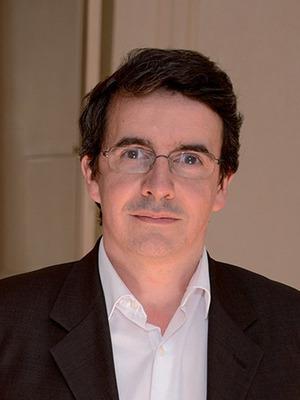 Bruno Cabanes, Professor of History and Mershon affiliate Bruno Cabanes, Professor of History and Mershon affiliate
George Paulson, Professor Emeritus of Neurology
Tamar Chute, Professor and University Archivist
Panelists will discuss the different facets of the War's violence on the battlefields and against ordinary citizens; the simultaneous scourge - the Influenza Epidemic of 1918 - that led to millions of deaths world-wide; and the monumental effect of both crises on OSU's campus. Light refreshments will be served. Read more
|
Tuesday, September 26, 2017
5:30 p.m., 130 Page Hall, 1810 College Road
 The United States initially sent military forces into Afghanistan following the devastating attacks on September 11, 2001, in an attempt to dismantle al-Qaeda and dispel global terror. Sixteen years and three administrations later, U.S. troops remain in Afghanistan without any plans of withdrawal, making the war in Afghanistan the longest in U.S. history. Please join us as we discuss the ongoing conflict and examine the nation's plans for the future with
Peter Mansoor, Gen. Raymond E. Mason Jr. Chair in Military History, in an event moderated by Scott Levi, associate professor of history. For those of you unable to attend, this event will be streamed via Facebook Live on the
Glenn College Facebook page. The room will be equipped so our audience can listen and participate remotely.
Read more and register
|
Wednesday, October 18, 2017
11:30 a.m., Boat House at Confluence Park, 679 W. Spring St.
Sponsored by Columbus Council on World Affairs
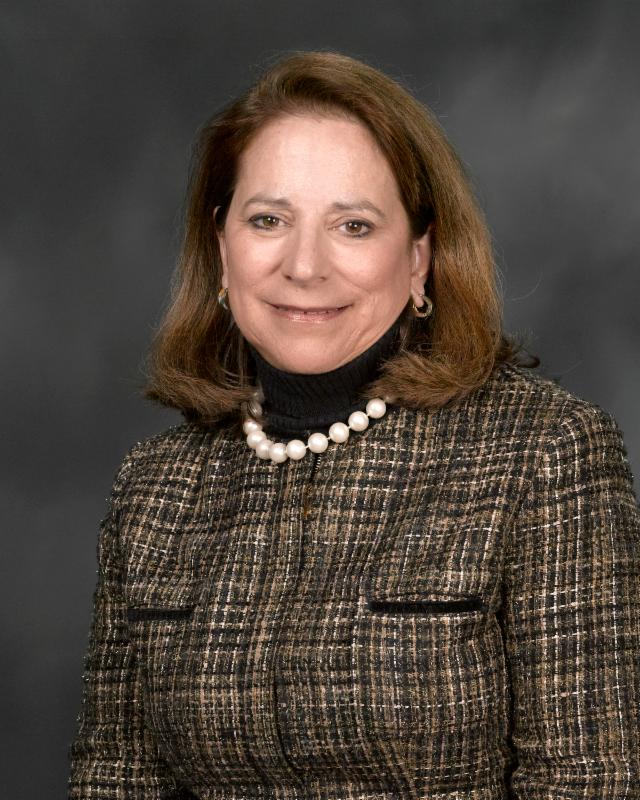 In June 2017, Secretary of Defense Mattis in testimony before the House Armed Services Committee identified North Korea aggressively improving its nuclear and missile capabilities as one of the five top threats to peace and security and the international order. What do we know about North Korea's nuclear capabilities and intentions? Are we on the brink of war on the Korean peninsula? What are the key factors influencing the United States' relationship with Russia and China right now? Will the nuclear agreement with Iran hold? What are the implications for the region and for the global community?
Lori Esposito Murray, adjunct senior fellow at the Council on Foreign Relations, will help us put these critical topics into context.
Read more and register
|
 |
 |
'Origins' examines infrastructure projects in America
Origins has published its new article: "How Public and Private Enterprise Have Built American Infrastructure" by William R. Childs.
During the 2016 presidential campaign, Donald Trump promised to spend $1 trillion to improve and expand the nation's infrastructure. While the White House has not yet put forth any specific infrastructure plan, everyone agrees that our infrastructure needs attention desperately.
This month, historian William Childs examines the history of how we have built infrastructure-everything from roads to the Internet -- usually through partnerships between government and the private sector. Without that partnership, infrastructure projects are likely to languish. Read the article at
origins.osu.edu
.
About Origins:
Origins: Current Events in Historical Perspective is a monthly ad-free magazine that features top scholars on today's most pressing topics. Published by The Ohio State History Department, its authors include National Book Award winners and world-renowned scholars. You can also explore
reviews of popular history books on the
Origins website as well as the new monthly feature
Milestones.
|
Cramer to discuss right-wing populism and rise of Trump
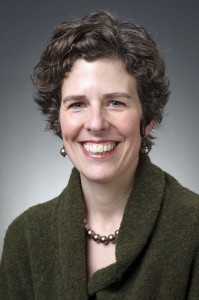 Ohio State's
Democracy Studies is hosting
Katherine Cramer, author of
The Politics of Resentment: Rural Consciousness in Wisconsin and the Rise of Scott Walker, on
Wednesday, September 27, 12-1:30 p.m., at Thompson Library, Room 165 (Multipurpose Room). Cramer is professor of political science and director of the Morgridge Center for Public Service at the University of Wisconsin-Madison.
She will be talking about the nature of current right-wing populism in the United States, drawing on her extensive examination of rural voters in Wisconsin. She will explain the intensive and pervasive resentment toward cities and urban residents she has heard in conversations with 39 groups of people across 27 communities, and explain how this perspective provided fertile ground for the victory of Donald Trump in the 2016 presidential election. The talk is free and open to all.
|
2017 International Photography Competition open
All students, faculty, staff, visiting scholars and alumni at The Ohio State University are invited to submit their photos to the 2017 International Photography Competition. Entries will be accepted through
Monday, October 9. This is a wonderful opportunity to share your original photographs from around the world. In addition to honoring the Best in Show, first, second and third place winners will be selected in the following categories: People, Places and Politics. There will also be People's Choice awards for the photos that receive the highest votes via the Facebook voting phase. Read more:
oia.osu.edu/photo-contest
|
|
|